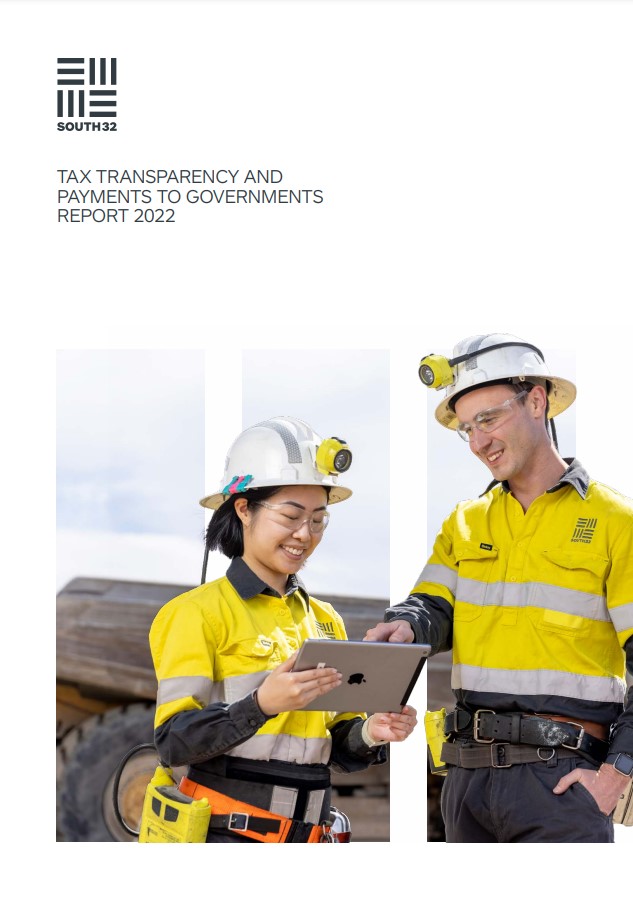
03 JANUARY 2025
Consistent with our purpose and just transition guiding principles, we are focused on collaborating with key stakeholders to secure stable and affordable low-carbon energy solutions for Hillside Aluminium and Mozal Aluminium, to support their continued commercial viability and continued contribution to the communities where they are located.
A reduction in output or closure could have significant impacts on workers, communities, local suppliers and domestic producers of aluminium products. Any decisions about the smelters' future operation will necessitate comprehensive planning to consider and manage potential impacts to our people and communities and to create new opportunities where possible.
Hillside Aluminium1
Hillside is the only primary aluminium smelter in South Africa. The smelter has played a key role in the domestic aluminium industry for over 20 years as a supplier to local companies that manufacture products for sale domestically and abroad.
Hillside is an important contributor to South Africa’s economy2 and a significant employer in the province of KwaZulu-Natal, where the official unemployment rate is almost 30 per cent3:
- Over 2,300 employees and contractors were employed by/at the smelter in FY24;
- Almost 90 per cent of Hillside’s employees in FY24 were Black People4, just under a third were women and 99 per cent were South African citizens;
- The smelter supports a further estimated 27,400 indirect employment opportunities in the economy; and
- US$269 million has been paid in wages and salaries from FY21 to FY24.
Through social investments of more than US$24 million since FY20, Hillside has contributed to a wide range of local community programs and initiatives. This includes US$5 million toward programs aimed at supporting access to education and leadership for students across five municipalities in the local King Cetshwayo District Municipality.
Developing small, medium, and micro enterprises (SMMEs) is fundamental to supporting the ongoing transformation of South Africa’s economy. Since FY19, Hillside has invested more than US$41 million in Enterprise and Supplier Development (ESD)5 to support local economic opportunities for SMMEs, including through job creation, upskilling and training.
This includes US$7.5 million in interest free loans to support the establishment of two semi-fabrication aluminium manufacturing facilities in Richards Bay, with the aim to reduce reliance on imports, increase aluminium beneficiation6 and create local job opportunities. One facility is a supplier of rim alloys to the automotive sector and the other, expected to be completed in 2026, will manufacture aluminium wire rods which will be needed as South Africa looks to decarbonise its electricity grid.
Another example is the partnership with sustainable energy provider Solana Energy to supply renewable energy to local community organisations and SMMEs and establish an academy to upskill young electricians in solar photovoltaic technology.
Mozal Aluminium7
Mozal is the second largest aluminium producer in Africa, after Hillside. The smelter contributes approximately four per cent to Mozambique’s annual GDP and is one of the country’s highest tax payers8.
Mozal is a significant industrial employer in Mozambique:
- Over 2,500 employees and contractors were employed by/at the smelter in FY24;
- An estimated additional 21,000 jobs are created through the multiplier impacts on the economy;
- Through a focus on training and skills development, Mozal has increased local hiring over the years and in FY24, 97 per cent of employees were Mozambican; and
- US$91 million paid in wages and salaries from FY21 to FY24.
More than 700 suppliers (locally and regionally) supplied goods and services to Mozal in FY24. The development of small and medium businesses through capacity-building programs has supported local procurement growth, helping to boost local economic development and prepare these businesses to supply other large companies.
Through social investments of more than US$12.5 million since FY19, Mozal has contributed to a wide range of community programs and initiatives, including:
- US$7.2 million to build and refurbish schools, train and upskill teachers and support education and training initiatives for students;
- US$1.6 million towards the AGROMOZAL program which helps farmers in communities to farm more productively, sustainably and competitively, and has created more than 1,468 jobs;
- US$$950,000 in disaster relief funding and to support recovery efforts after widespread flooding from tropical cyclones in FY23 and FY19;
- US$2.7 million towards building and refurbishing healthcare centres, medical clinics and facilities, and programs aimed at eradicating malaria in the region; and
- US$449,000 toward developing small and medium enterprises, creating job opportunities, and contributing to diversification of local economy.
Learn more about Hillside and Mozal’s social investments at www.south32.net/Sustainability/Stories
Footnotes:
(1) Economic and indirect employment data referenced in this case study is drawn from a third-party assessment of the economic and socioeconomic footprint of Hillside Aluminium undertaken in FY23.
(2) Estimated direct GDP contribution of ZAR9.9 billion in 2022. For every ZAR1.00 increase in local spend by Hillside, it is estimated that ZAR0.36 is added to South Africa’s GDP.
(3) As reported in the Quarterly Labour Force Survey by Statistics South Africa for Q1 2024, available at www.statssa.gov.za.
(4) Generic term meaning Africans, Coloureds and Indians who are citizens of the Republic of South Africa as defined in the Broad-Based Black Economic Empowerment Amendment Act, 2013.
(5) Enterprise and Supplier Development (ESD) consists of two activities, Enterprise Development and Supplier Development. The Enterprise Development component is captured in both the ESD total and the social investment total.
(6) Aluminium beneficiation is the local manufacturing of aluminium into higher value products to benefit the local South African manufacturing sector.
(7) Economic and indirect employment data referenced in this case study is drawn from a third-party assessment of the economic and socioeconomic footprint of Mozal Aluminium undertaken in FY23.
(8) Taxes and other payments to government made by Mozal Aluminium represent an estimated nine per cent of direct tax revenue.
Topics
